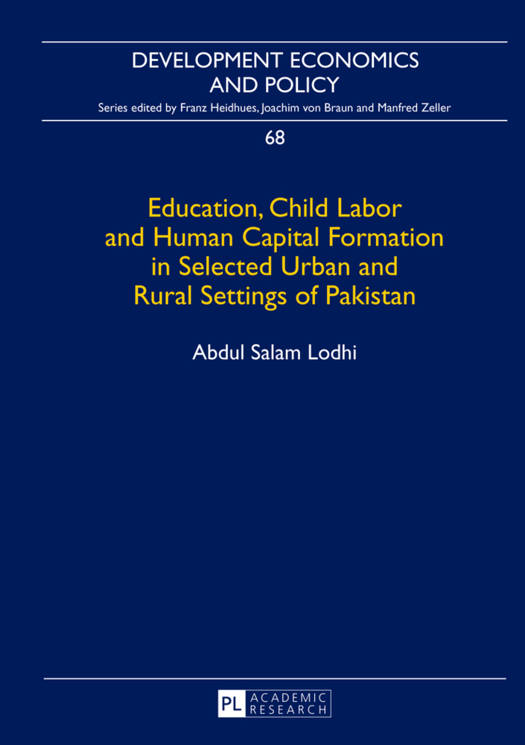
- Afhalen na 1 uur in een winkel met voorraad
- Gratis thuislevering in België vanaf € 30
- Ruim aanbod met 7 miljoen producten
- Afhalen na 1 uur in een winkel met voorraad
- Gratis thuislevering in België vanaf € 30
- Ruim aanbod met 7 miljoen producten
Zoeken
Education, Child Labor and Human Capital Formation in Selected Urban and Rural Settings of Pakistan
Abdul Salam Lodhi
€ 61,45
+ 122 punten
Omschrijving
Education is essential for human resource development and sustainable socio-economic development of a society, as it can facilitate economic growth through the broader application of knowledge, skills, and the creative strength of a society. The other positive and long-term outcomes of education include the reduction of poverty and inequality, improvement of health status and good governance in the implementation of socio-economic policies. Keeping in view the role that education through human capital formation can play in the development of Pakistan where the population of the children below 14 years old is about 35 percent of the total population; this study aims at delineating the factors that are obstructing the educational activities of the children below the age of 14 years. Furthermore, the main research interest in this study was to see how pecuniary and non-pecuniary factors are impeding the process of human capital formation. The results indicate that variables such as parental education and perceptions of secular and non-secular education, role of mother in domestic authority, believe in tribal norms, religiosity of the head-of-household, child age and gender, and proximity to school are playing a significant role in the choice of childhood activities.
Specificaties
Betrokkenen
- Auteur(s):
- Uitgeverij:
Inhoud
- Aantal bladzijden:
- 156
- Taal:
- Engels
- Reeks:
- Reeksnummer:
- nr. 68
Eigenschappen
- Productcode (EAN):
- 9783631626764
- Verschijningsdatum:
- 27/03/2013
- Uitvoering:
- Hardcover
- Formaat:
- Genaaid
- Afmetingen:
- 147 mm x 211 mm
- Gewicht:
- 385 g

Alleen bij Standaard Boekhandel
+ 122 punten op je klantenkaart van Standaard Boekhandel
Beoordelingen
We publiceren alleen reviews die voldoen aan de voorwaarden voor reviews. Bekijk onze voorwaarden voor reviews.







